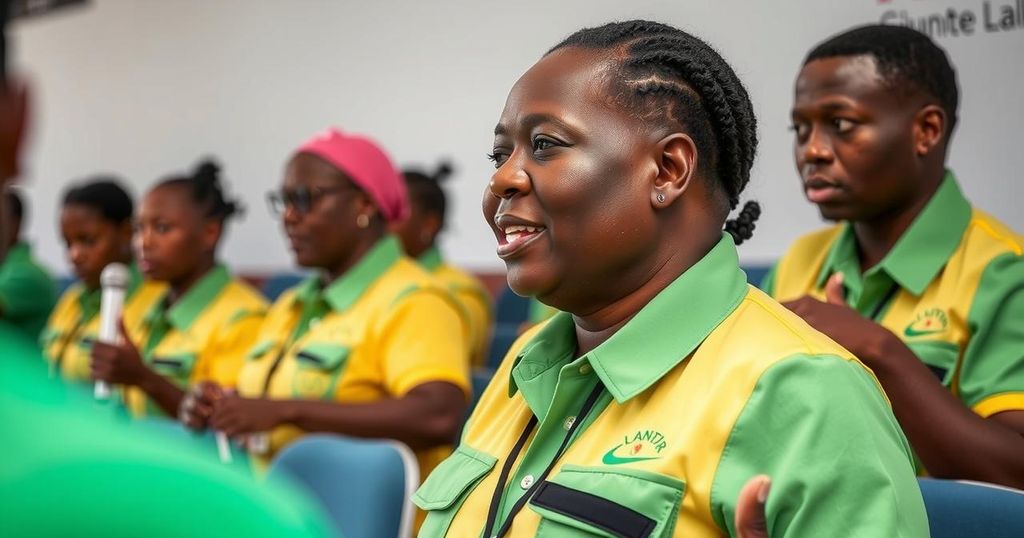World news
2024 ELECTIONS, AFRICA, ALI BONGO ONDIMBA, BILLBOARD, BR, BRICE OLIGUI NGUEMA, COMMITTEE FOR THE TRANSITION AND RESTORATION OF INSTITUTIONS, CORRUPTION, CT, ELECTIONS, GABON, INTERIOR MINISTRY, LIBREVILLE, NATIONAL ASSEMBLY, OLIGUI, POLITICS, UNION NEWSPAPER, VOTER TURNOUT
Daniel O'Connor
0 Comments
Gabon Reports Strong Support for New Constitution Following Referendum
Gabon’s military rulers reported that 91.8 percent of voters approved a new constitution during a recent referendum, aiming to reform the political structure following a coup last year. The new framework proposes a two-term limit for presidents and excludes candidates with foreign ties. Despite low voter turnout, the transitional president lauded the referendum as a positive development for governance in Gabon.
Gabon’s military government declared a significant victory in the referendum concerning a proposed new constitution, with preliminary results indicating that 91.8 percent of voters supported the measure. Approximately 860,000 registered voters were encouraged through various media to participate in the democratic process, with the turnout reported at 53.54 percent. The new constitution proposes a presidency limited to two seven-year terms, eliminates the position of prime minister, and prohibits dynastic power transfers. Presidential candidates must be exclusively Gabonese with at least one Gabon-born parent and a Gabonese spouse, thus hindering former President Ali Bongo Ondimba’s potential return to power. Transitional president Brice Oligui Nguema characterized the event as a “great step forward” and expressed intentions to eventually restore civilian governance after a two-year transitional period. However, critics allege that the proposed changes are strategically designed to entrench authoritarian rule rather than facilitate democratic reform.
The context of the referendum in Gabon arises from a coup that removed the long-standing president Ali Bongo Ondimba from power, following accusations of electoral fraud and poor governance. The military junta aims to institutionalize a new political framework through the proposed constitution, which addresses several contentious issues, including the political succession process. The public reaction to the junta’s governance reflects a broader concern about the potential for enduring authoritarianism, even under the guise of constitutional reform. In contrast, there is a significant segment of the population that expresses confidence in the current transitional leadership, which creates a complex social and political landscape leading up to the anticipated presidential elections in August 2025.
In summary, the provisional results of the referendum reflect significant public support for the new constitutional framework proposed by Gabon’s military leaders, although the turnout rates and potential implications raise important questions about the democratic process. While the new constitution introduces major changes to the political landscape by limiting presidential terms and requiring candidates to possess specific Gabonese affiliations, concerns about authoritarian governance persist among critics. The final decision on the constitutional changes will rest with the country’s constitutional court, a vital step in shaping Gabon’s political future.
Original Source: www.tiogapublishing.com




Post Comment